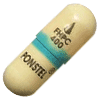How to buy Ponstal (Ponstel) without prescription in 2024?
Ponstal Online Prices
How much does Ponstal costs in online stores in 2024? Ponstal, a popular medication, has varying costs in online stores, influenced by several factors. The price of Ponstal largely depends on the specific online store, the country where the store is based, and the nature of the pills themselves. These factors collectively contribute to the wide range of prices observed for this medication.
Firstly, the choice of online store plays a crucial role in determining the cost. Online pharmacies operate under different business models and regulatory environments, leading to price variations. For instance, stores based in countries with stricter pharmaceutical regulations or higher operational costs may offer Imitrex at a higher price compared to those in countries with more lenient regulations or lower overheads.
Another significant factor is the country where the online store is located. The cost of pharmaceuticals varies greatly across countries due to differences in healthcare policies, taxation, and the degree of competition in the pharmaceutical sector. For example, countries with universal healthcare systems might offer medications at lower prices than countries without such systems. Moreover, import and export regulations, currency exchange rates, and international shipping costs can also affect the final price of Imitrex when purchased from an overseas store.
Lastly, the type of pills - whether brand or generic - is a primary determinant of price. Brand-name pills, manufactured by the original patent holder, typically costs more due to research, development, and marketing expenses. In contrast, generic versions, which contain the same active ingredients and are equally effective, are usually cheaper. Generic medications cost less because manufacturers do not have the same development and marketing expenses as the original brand.
To illustrate these points, a table with prices for generic Ponstal from the online store could be provided as an example. It's important to note that these prices are subject to change and may vary over time due to market dynamics and other influencing factors.
Ponstal 500mg
| Package | Per Pill | Price | Savings |
|---|---|---|---|
| 500mg × 60 pills | $0.74 | $44.16 | |
| 500mg × 90 pills | $0.48 | $43.06 | $23.18 |
Ponstal 250mg
| Package | Per Pill | Price | Savings |
|---|---|---|---|
| 250mg × 90 pills | $0.52 | $46.8 |
>> Visit Online Pharmacy <<
What is Ponstal?

Ponstal is used for the short-term treatment of mild to moderate pain from various conditions. It is also used to decrease pain and blood loss from menstrual periods.
Ponstal is known as a nonsteroidal anti-inflammatory drug (NSAID).
Ponstal may also be used to treat gout attacks.
How to use Ponstal
Read the Medication Guide provided by your pharmacist before you start using Ponstal and each time you get a refill. If you have any questions, consult your doctor or pharmacist.
Take Ponstal by mouth, usually 4 times a day with a full glass of water (8 ounces or 240 milliliters) or as directed by your doctor. Do not lie down for at least 10 minutes after taking Ponstal. If stomach upset occurs, take Ponstal with food or milk. Do not take Ponstal with antacids unless directed by your doctor. Certain antacids may change the amount of Ponstal absorbed by the body.
Dosage is based on your medical condition and response to therapy. To reduce your risk of stomach bleeding and other side effects, take Ponstal at the lowest effective dose for the shortest possible time. Do not increase your dose, take it more frequently, or take it for a longer time than prescribed. Ponstal usually should not be taken for more than 7 days at a time.
If you are taking Ponstal on an "as needed" basis (not on a regular schedule), remember that pain medications work best if they are used as the first signs of pain occur. If you wait until the symptoms have worsened, the medicine may not work as well.
If you are using Ponstal for painful periods, take your first dose as soon as your period starts or pain begins. Usually, you will only need to take it for the first 2 to 3 days of your period.
Inform your doctor if your pain persists or worsens or if you develop new symptoms.
Ponstal Side Effects
Upset stomach, nausea, heartburn, dizziness, drowsiness, diarrhea, and headache may occur. If any of these effects persist or worsen, notify your doctor or pharmacist promptly.
Remember that your doctor has prescribed Ponstal because he or she has judged that the benefit to you is greater than the risk of side effects. Many people using Ponstal do not have serious side effects.
Ponstal may raise your blood pressure. Check your blood pressure regularly and tell your doctor if the results are high.
Tell your doctor immediately if any of these unlikely but serious side effects occur: fainting, persistent/severe headache, hearing changes (e.g., ringing in the ears), fast/pounding heartbeat, mental/mood changes, stomach pain, difficult/painful swallowing, swelling of the ankles/feet/hands, sudden/unexplained weight gain, vision changes, unusual tiredness.
Stop taking Ponstal and tell your doctor immediately if any of these rare but very serious side effects occur: easy bruising/bleeding, signs of infection (e.g., fever, persistent sore throat), unexplained stiff neck, change in the amount/color of urine.
Ponstal may rarely cause serious, possibly fatal liver disease. If you notice any of the following rare but very serious side effects, stop taking Ponstal and consult your doctor or pharmacist immediately: persistent nausea/vomiting, severe stomach/abdominal pain, weakness, dark urine, yellowing eyes/skin.
A very serious allergic reaction to Ponstal is rare. However, stop taking Ponstal and immediately seek medical attention if you notice any of the following symptoms of a serious allergic reaction: rash/blisters, itching/swelling (especially of the face/tongue/throat), severe dizziness, trouble breathing.
Ponstal Precautions
Before taking Ponstal, tell your doctor or pharmacist if you are allergic to it; or to aspirin or other NSAIDs (e.g., ibuprofen, naproxen, celecoxib); or if you have any other allergies. Ponstal may contain inactive ingredients, which can cause allergic reactions or other problems. Talk to your pharmacist for more details.
Ponstal should not be used if you have certain medical conditions. Before using Ponstal, consult your doctor or pharmacist if you have: aspirin-sensitive asthma (a history of worsening breathing with runny/stuffy nose after taking aspirin or other NSAIDs, severe kidney disease, recent heart bypass surgery (CABG), active bleeding/sores in stomach/intestines (ulcer, gastrointestinal bleeding).
Before using Ponstal, tell your doctor or pharmacist your medical history, especially of: asthma, bleeding/clotting problems, blood disorders (e.g., anemia), high blood pressure, diabetes, heart disease (e.g., history of heart attack), liver disease, growths in the nose (nasal polyps), obesity, tobacco use, history of stomach/intestine/esophagus problems (e.g., bleeding, ulcers, recurring heartburn), stroke, swelling of the ankles/feet/hands.
Kidney problems can sometimes occur with the use of NSAID medications, including Ponstal. Problems are more likely to occur if you are dehydrated, have heart failure or kidney disease, are an older adult, or if you take certain medications (see also Drug Interactions section). Drink plenty of fluids as directed by your doctor to prevent dehydration and tell your doctor right away if you have any unusual change in the amount of urine.
Before having surgery, tell your doctor or dentist that you are using Ponstal.
Ponstal may make you dizzy or drowsy. Do not drive, use machinery, or do any activity that requires alertness until you are sure you can perform such activities safely. Avoid alcoholic beverages.
Ponstal may cause stomach bleeding. Daily use of alcohol and tobacco, especially when combined with Ponstal, may increase your risk for stomach bleeding. Limit alcohol and stop smoking. Consult your doctor or pharmacist for more information.
Ponstal may make you more sensitive to the sun. Avoid prolonged sun exposure, tanning booths, or sunlamps. Use a sunscreen and wear protective clothing when outdoors.
Kidney function declines as you grow older. Ponstal is removed by the kidneys. Therefore, caution is advised when using Ponstal in the elderly because they may be more sensitive to its side effects, especially stomach bleeding and kidney problems.
Before using Ponstal, women of childbearing age should talk with their doctor(s) about the benefits and risks (such as miscarriage, trouble getting pregnant). Tell your doctor if you are pregnant or if you plan to become pregnant. During pregnancy, Ponstal should be used only when clearly needed. It is not recommended for use during the first and last trimesters of pregnancy due to possible harm to the unborn baby and interference with normal labor/delivery.
Ponstal passes into breast milk and may have undesirable effects on a nursing infant. Consult your doctor before breast-feeding.
Ponstal Intercations
Drug interactions may change how your medications work or increase your risk for serious side effects. This document does not contain all possible drug interactions. Keep a list of all the products you use (including prescription/nonprescription drugs and herbal products) and share it with your doctor and pharmacist. Do not start, stop, or change the dosage of any medicines without your doctor's approval.
Some products that may interact with Ponstal include: aliskiren, ACE inhibitors (such as captopril, lisinopril), angiotensin II receptor blockers (such as valsartan, losartan), cidofovir, corticosteroids (e.g., prednisone), fluconazole, ketorolac, lithium, methotrexate, "water pills" (diuretics such as furosemide).
Ponstal may increase the risk of bleeding when taken with other drugs that also may cause bleeding. Examples include anti-platelet drugs such as clopidogrel, "blood thinners" such as dabigatran/enoxaparin/warfarin, among others.
Check all prescription and nonprescription medicine labels carefully since many medications contain pain relievers/fever reducers (aspirin, NSAIDs such as celecoxib or ibuprofen). These drugs are similar to Ponstal and may increase your risk of side effects if taken together. However, if your doctor has directed you to take low-dose aspirin to prevent heart attack or stroke (usually at dosages of 81-325 milligrams a day), you should continue taking the aspirin unless your doctor instructs you otherwise. Ask your doctor or pharmacist for more details.
Ponstal may interfere with certain laboratory tests (e.g., urine bile test), possibly causing false test results. Make sure laboratory personnel and all your doctors know you use Ponstal.
>> Visit Online Pharmacy <<

Contact Us
Please fill free to contact us anytime. You can use feedback form or the contact details below:
Website : painreliefers.com
+1 (760) 284-3222
+4420-3286-3820
Tags
2024 Overview Pain relief Over the counter A-Letter Pills B-Letter Pills C-Letter Pills D-Letter Pills E-Letter Pills F-Letter Pills G-Letter Pills H-Letter Pills I-Letter Pills J-Letter Pills K-Letter Pills L-Letter Pills M-Letter Pills N-Letter Pills O-Letter Pills P-Letter Pills R-Letter Pills S-Letter Pills T-Letter Pills U-Letter Pills V-Letter Pills X-Letter Pills Z-Letter Pills

About Us
PainReliefTabs has been created by us in early 2013. We do not sell anything! We only help people to find the information in the Internet and we believe that it's very important to provide users with realiable information nowadays. All brand names and trademarks are the properites of their respective owners.
Read out update note.
Subscribe
Enter your e-mail below and get notified on the latest blog posts.